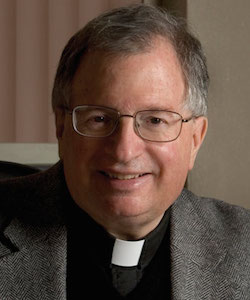
Development Challenges and Global Governance: The Long View
Joel Hellman | September 11, 2015
Responding To: SFS Dean Inaugurates Georgetown's Discussion of Global Governance
Shareen Joshi
Dean Hellman has very persuasively called for new ideas to improve development programs in conflict-affected settings that face severe challenges of security, institutional quality and human capacity. He has also laid out an imperative for faculty of Georgetown’s School of Foreign Service to think about their own role in these issues as scholars, teachers, and citizens of a community with unique values.
In response, I find myself asking how my own scholarship and life experiences may contribute to this discussion. As a micro-economist focused on studying the impact of poverty-alleviating development programs on large populations of individuals and households, I find myself looking for ideas in the grass-roots levels of some far away places where I have lived and worked. I will share three perspectives from my own work.
First, I think this conversation must absolutely talk about women. It is startling to me that women are rarely at the negotiating table in brokering peace. Yet, it is they, as mothers and daughters, who have the greatest stake in peace. They tend to lose the most in conflict, and have the power to get men to give up arms and make peace. Much research from across the social sciences confirms that sustainable development policies must invest in women -- there are big spillovers for children, the elderly, families and communities. I would like to believe that Georgetown is a great place to have conversations about gender. From teaching my class entitled “Sex, Power and Politics in International Development," I have seen first-hand that students on this campus aren’t afraid to engage on this issue! I look forward to thinking of innovative ideas to engage with women in conflict-ridden settings.
Second, my research suggests that local leaders play a big role in sustainable development. When I first met Dean Hellman just four months ago, I asked him who he regarded as a great leader. His very thoughtful answer pointed to people he had met in the aftermath of the Banda Aceh earthquake. This was an exciting answer – in my fieldwork, I too have seen that leadership at the grassroots level is critical to long-term efforts to improve the quality of life. Long-term change involves hard choices, where some people gain and others lose. Strong leaders at the local level can manage that process carefully. In my own research I have studied how local leadership on health policies in Bangladesh contributed to one of the fastest drops in fertility in the world and one of the highest paces of human development in the world. Given that we often talk about leadership on our campus, we have many leaders on our faculty, and many of our students strive to be leaders, it would be exciting to find new ways to export some ideas to conflict-ridden settings. Selfishly, I look forward to being the quantitative researcher on the team who can study the effort!
Finally, my research suggests that development can benefit from investments in entirely new institutions at the grassroots level. In India for example, since my days of growing up there, I have noticed that there has been a near explosion in the number of new local grassroots organizations, particularly in rural areas– women’s groups, credit groups, farmer cooperatives, health advocacy groups, village committees, federations, etc. As a scholar, I now study the impact of these entities, and have consistently found that though these institutions do (almost) nothing to increase income, they can indeed empower the poor, particularly women. This is a key step in the process of alleviating poverty. But from growing up there I also know that designing these institutions and protecting them from competing interests is very difficult, even in a stable society. In my time at Georgetown, I hope to reach across disciplinary boundaries to think about when it is ethical for external actors to disrupt a social fabric and induce people to re-think how they work together. I know I am fortunate to have this type of opportunity.
A very big thanks to Dean Hellman for getting us all thinking about how to work together to take on these questions!
Shareen Joshi is an assistant professor in the School of Foreign Service.

Joel Hellman | September 11, 2015

Desha Girod | September 10, 2015

Drew Christiansen | September 10, 2015

Emmanuel Foro | September 10, 2015

Erwin Tiongson | September 10, 2015

Fr. Kevin O'Brien | September 10, 2015

François Pazisnewende Kaboré | September 10, 2015
James Vreeland | September 10, 2015

Justin Rattey | September 10, 2015

Katherine Marshall | September 10, 2015

Marc Busch | September 10, 2015

Marion Abboud | September 10, 2015

Patrice Ndayisenga | September 10, 2015

Tobias Vestner | September 10, 2015